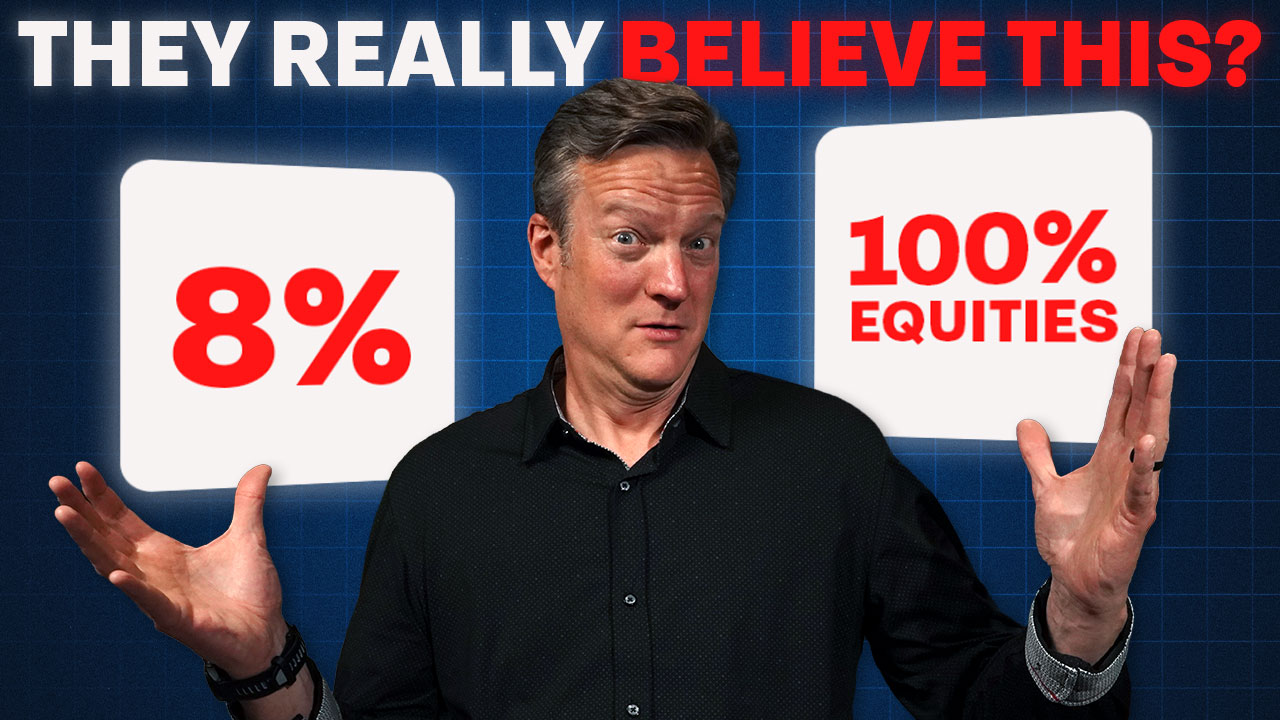Next up, we have Baylor B. The question is, "If I am deferring my reimbursements from my HSA and leaving it invested, when is the ideal time to finally reimburse myself?"
Alright, Brian, I'm going to answer theoretically, and then I want you to answer realistically. In theory, you think about your tax buckets - you've got three of them. You've got the tax-deferred bucket, that's like 401(k)s, IRAs, that kind of stuff. You've got your after-tax bucket, that's like your normal brokerage account, your joint account, your trust account, those types of holdings. And then you have this third bucket, your tax-free bucket, those are your Roth assets and your health savings account assets. If you're investing those for the future and you plan on reimbursing medical expenses, theoretically, when it comes to distribution strategy, in an ideal world, you want to pull out of your tax-free bucket last. You want those dollars to grow for as long as possible so that you can maximize the tax-free growth available inside of those accounts. So, that's the theoretical answer, Brian. In reality, in practicality, do you think that's really how most people do it? How it normally plays out? Or do we find that in retirement, HSA buckets kind of turn into, "Okay, if I have a health expense, that's where it comes out of?"
Yeah, it is one of those things where, and we recognize this is a financial mutant strategy here because only four percent of people actually use an HSA for long-term growth and investment opportunities. The other 96 percent only use it as a clearing account. You put the money in, you take the tax deduction, then you pull it right back out. It never got to be invested, never got to grow, never got to take advantage of the tax-free growth opportunity. And to put everybody's mind at ease, we have done the research. We've done a show where you can go see the IRS code section or the part of the revenue that they point to that you can die with the HSA with these assets, and then your beneficiary, your people who your executor and executives can go out there and pull this money out tax-free. That's written in the tax code. So, it's not like one of those things where you've got to hurry up and do this before you die. But that gets to the point of what I thought where you were going with it. Was the three-bucket strategy we always talk about. That's typically the order you go in, is almost the order you go out. Where you don't want the tax-free assets, that's kind of the last bucket you pull out of in retirement because we love sticking it to the government legally because it is tax-free growth. But where you went, Bo, and I do agree with this, is it's not uncommon when people get to retirement, you'll say, "Why not start paying for these big health care expenses directly from the HSA because I'm gonna be able to pull that money out? It's tax-free." And plus, you actually did all the parts because we talk about HSAs are Triple Tax Advanced - you get the deduction on the way in, you get the tax-deferred growth over the time that the money's invested, and if you use it for qualified health care and medical expenses, it is completely tax-free on the distribution. I'm personally planning on leaving my money in there for years. It will be just like my Roth assets - my HSA assets will be one of the last buckets I pull out of because I have huge medical expenses I pay every year with my daughter, who has autism. So, her schools qualify for medical expenses. I get a letter from the school every year; we have doctors' notes in the file. So, that tuition is just tens of thousands of dollars every year. So, there's not I'm gonna be able to pull that money out, and it's all going to be tax-free at some point because I've kept the records. But I'm just gonna wait. Why not go ahead and maximize that tax-free growth as long as possible? I'm gonna do that. Now, I also think it's great for people to understand you have a get-out-of-jail if you get yourself in a bad pickle of a financial situation, and you're trying to figure out, do I go pull this out of my Roth assets, do I pull this out of the HSA? Because I've been keeping all these receipts, you always have the ability to break the glass, use these funds if you get into a really short financial situation or maybe a great opportunity instead of being negative with a health care issue. Why not think about if you had a commercial building or something else that came through, and you're now trying to figure out where do I come up with that down payment for this chance of a lifetime? This is another place. So, let it be your goal or intent, but then know that you have the ability to get to this if you needed it. Love it. For more information, check out our
free resources here.














